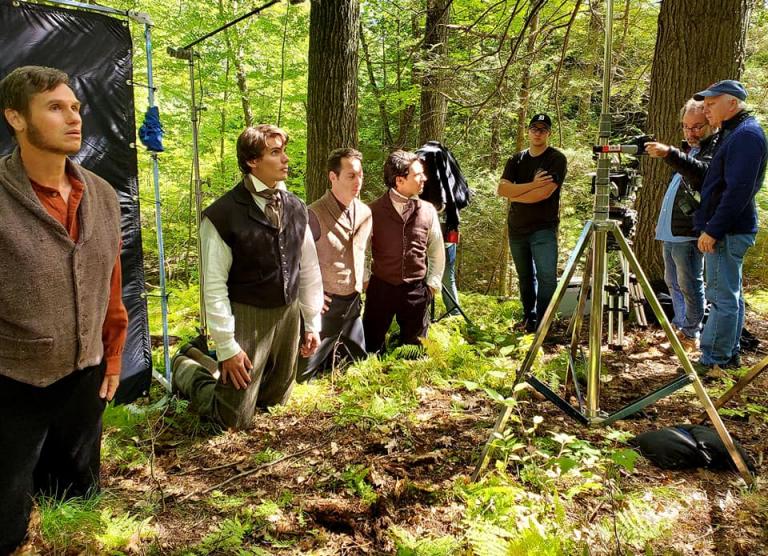
(A still photograph by James Jordan taken on the set of the Interpreter Foundation’s “Witnesses” film project back in 2019.)
I offer another note taken from Andrew Sims, Is Faith Delusion? Why Religion is Good for Your Health (London and New York: Continuum, 2009).
But, first, I need to point out that his use of the name Joseph Smith here is probably not significant. For one thing, of course, the Prophet Joseph Smith most definitely did not imagination himself to be Jesus Christ and was never a resident of a mental hospital, and the passage below makes no real sense if the “Joseph Smith” mentioned is thought to be an early nineteenth-century American religious leader. I assume that Dr. Sims used Joseph and Smith because they are common names, much the way that Thomas and Brown are. Certainly he makes no reference whatever to the Restoration or to the Church of Jesus Christ of Latter-day Saints.
His point, though, is and remains an interesting one:
In former times, when there could be several long-term residents of the mental hospital who believed themselves to be Jesus Christ, this was not a shared or communicated delusion. Joseph Smith believed that Joseph Smith was Jesus Christ and Thomas Brown believed that Thomas Brown was. Thomas Brown would not believe that Joseph Smith was Jesus Christ — the delusion was not shared; if a belief is shared, it is most unlikely to be delusion.
The reason that delusions cannot be shared is that it is of the essence of delusion that it is, in [Karl] Jaspers’ expression, ‘ultimately un-understandable’. This means that, even putting oneself in that person’s position and seeing the world from their point of view, one is still unable to understand how they could hold that belief with delusional intensity. One can be bludgeoned into giving assent . . . but one cannot believe what cannot be shared. (127-128)
[Dr. Sims is citing Karl Jaspers, General Psychopathology (1959), translated by J. Hoenig and M. W. Hamilton (Manchester: Manchester University Press, 1963), 305-307.]
Why do I think his point significant? Well, I think it relevant to attempts to dismiss the experiences of the Witnesses to the Book of Mormon as delusional.
***
Some of you may find this news item of interest. It appeared in the campus newspaper at Brigham Young University:
“BYU 3D printing protective masks for first responders during coronavirus crisis”












